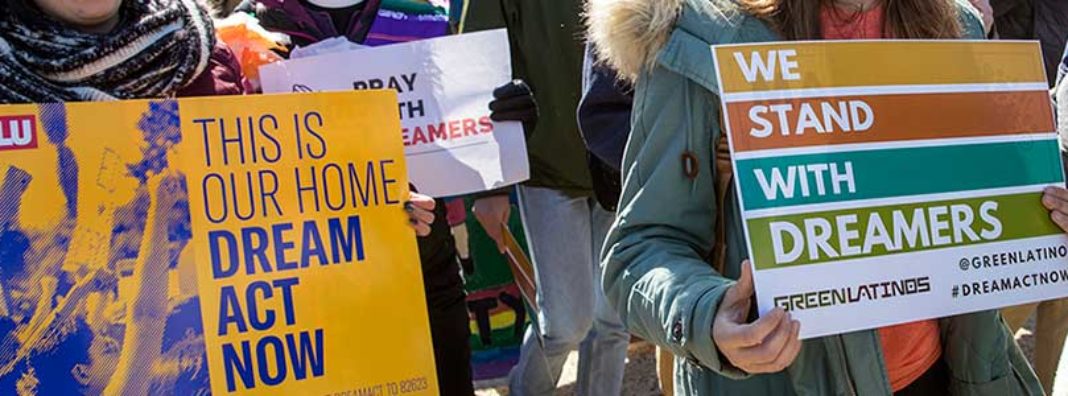
DACA (Deferred Action for Childhood Arrivals) supporters march to the Capitol during the “We Are All DREAMers” rally in Salt Lake City on Saturday, Sept. 16, 2017. Laura Seitz, Deseret News
On April 18, a coalition of Republicans and Democrats discussed potential avenues for forcing a debate on the Obama-era executive order known as Deferred Action for Childhood Arrivals. This order protects “Dreamers,” young adults brought to the United States illegally by their parents as children. President Trump, however, rescinded those protections seven months ago. Although Trump originally set March 5 as the deadline for legislative action protecting Dreamers, little has happened.
Legislative inaction that fails to protect Dreamers is unacceptable. They are an economic boon that more than justifies granting them a path to citizenship. Not to mention that because all recipients were brought here as children, we can’t hold them to the same standard we do adults. The question is not just if immigration laws have been broken, but if children can be morally held to a standard that they neither chose to violate nor initially understand they transgressed.
One of the most common complaints about immigration is that immigrants take jobs from native-born Americans. In the case of the Dreamers protected by Obama’s order, however, it’s likely the opposite. Dreamers, according to immigration experts with the Center for American Progress, are twice as likely as the general public to plan to start their own businesses. These businesses range from small online craft shops to tax preparation services and tech companies. Dreamers’ entrepreneurship promotes economic growth throughout their communities and the entire country.
Aside from the businesses they start, immigrants also boost the demand for goods and services in the overall economy and create jobs at existing businesses. In purely economic terms, additional immigration is simply more people who will buy from local grocery stores or get their cars fixed at local mechanics. The economy isn’t a fixed pie that must be doled out in smaller and smaller pieces, but instead grows as more people enter.
Another objection to legislation that protects Dreamers is that they, and all others who want to come into the United States, should just “get in line.” If only it was that simple. As the American Immigration Council points out, there’s not even much of a line to begin with — the existing channels are particularly ill-fitting for Dreamers, who have spent nearly their entire lives in the United States.
Plus, being a Dreamer means the applicant was brought in as a child, which creates additional problems with the “get in line” mentality. There are only a few cases, such as murder, where children are held to the same standard as adults, and even these are controversial. Children aren’t morally responsible in the way adults are, and the legal system’s division into juvenile and adult systems reflects this.
There are no areas of life where we hold children accountable for their parents’ actions. Debates about the ultimate fate of Dreamers often neglect this reality. A child can no more understand that they’re breaking complex immigration laws than tell their parents that they would really rather get in a stalled and ill-defined line to enter legally. It’s simply unreasonable to expect the 800,000 Dreamers to leave the country they grew up in and petition for re-entry. But that is exactly what is expected of Dreamers.
In the debate for Deferred Action for Childhood Arrivals, too much time is spent arguing about whether there will be enough jobs for natives that could be better spent discussing the moral dimension of it all. Children can’t be held to something they had no choice in. The relevant question is not just if immigration laws were broken, but if it’s appropriate to punish children for the actions of their parents.
Congress must find a solution for Dreamers that acknowledges they aren’t responsible for where they are and provides a clear but rigorous path to citizenship for them in the country they’ve made their home.


 Deseret News
Deseret News